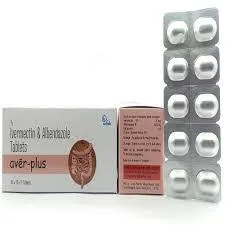- Afrikaans
- Albanian
- Amharic
- Arabic
- Armenian
- Azerbaijani
- Basque
- Belarusian
- Bengali
- Bosnian
- Bulgarian
- Catalan
- Cebuano
- Corsican
- Croatian
- Czech
- Danish
- Dutch
- English
- Esperanto
- Estonian
- Finnish
- French
- Frisian
- Galician
- Georgian
- German
- Greek
- Gujarati
- Haitian Creole
- hausa
- hawaiian
- Hebrew
- Hindi
- Miao
- Hungarian
- Icelandic
- igbo
- Indonesian
- irish
- Italian
- Japanese
- Javanese
- Kannada
- kazakh
- Khmer
- Rwandese
- Korean
- Kurdish
- Kyrgyz
- Lao
- Latin
- Latvian
- Lithuanian
- Luxembourgish
- Macedonian
- Malgashi
- Malay
- Malayalam
- Maltese
- Maori
- Marathi
- Mongolian
- Myanmar
- Nepali
- Norwegian
- Norwegian
- Occitan
- Pashto
- Persian
- Polish
- Portuguese
- Punjabi
- Romanian
- Russian
- Samoan
- Scottish Gaelic
- Serbian
- Sesotho
- Shona
- Sindhi
- Sinhala
- Slovak
- Slovenian
- Somali
- Spanish
- Sundanese
- Swahili
- Swedish
- Tagalog
- Tajik
- Tamil
- Tatar
- Telugu
- Thai
- Turkish
- Turkmen
- Ukrainian
- Urdu
- Uighur
- Uzbek
- Vietnamese
- Welsh
- Bantu
- Yiddish
- Yoruba
- Zulu
Tach . 09, 2024 05:09 Back to list
Use of Ivermectin Injection in Veterinary Medicine for Animal Health and Treatment
Understanding Ivermectin Injection for Veterinary Use
Ivermectin is a broad-spectrum antiparasitic agent widely used in veterinary medicine to treat various parasitic infections in animals. This medication is particularly effective against endoparasites such as roundworms and tapeworms, as well as ectoparasites like mites and lice. Ivermectin's low toxicity profile and effectiveness make it a popular choice among veterinarians for managing parasitic diseases in a variety of species, including domestic pets, livestock, and even some zoo animals.
The Mechanism of Action
Ivermectin works primarily by binding to glutamate-gated chloride channels found in the nervous systems of parasites. This binding increases the permeability of the cell membranes to chloride ions, leading to paralysis and death of the parasites. Additionally, ivermectin can also interfere with the passage of gamma-aminobutyric acid (GABA) in certain organisms, further contributing to its antiparasitic effects. Importantly, ivermectin seems to have a much higher affinity for parasitic channels than for those found in mammals, which underlies its safety in veterinary applications.
Common Uses in Veterinary Medicine
Ivermectin injection is utilized in various veterinary contexts. In livestock, it is often used to combat infestations of internal parasites, such as Cooperia and Haemonchus species in cattle and sheep. For companion animals, ivermectin is frequently prescribed for the treatment of sarcoptic mange and other ectoparasitic conditions, especially in dogs. It is also used preventively for heartworm disease in certain breeds. However, it is essential to note that not all animals can tolerate ivermectin, especially certain dog breeds such as Collies, where genetic predispositions can lead to toxicity.
Dosage and Administration
ivermectin injection vet

The administration of ivermectin must be done carefully, adhering to age, weight, and health conditions of the animal. Commonly available in injectable form, vermifuge formulations are specifically designed for various types of animals. Dosing guidelines are generally provided by the manufacturers and should be strictly followed to avoid potential overdosage, which can lead to serious neurological side effects. Veterinarians will often administer the injection subcutaneously or intramuscularly, depending on the animal's size and the nature of the treatment.
Safety Considerations
While ivermectin is considered safe for most animals, there are specific contraindications and potential side effects. Common side effects may include transient lethargy or vomiting, but these symptoms typically resolve quickly. In cases of overdose or in sensitive breeds, more severe reactions can occur, including seizures or even coma. It is vital to perform a thorough assessment of the animal's health history and genetic background before beginning treatment with ivermectin.
Environmental Impact and Regulations
The use of ivermectin in livestock has implications for food safety and environmental health, as residues can be transferred to meat and dairy products. Regulatory agencies, such as the Food and Drug Administration (FDA) in the United States, have specific withdrawal times for livestock treated with ivermectin before they can be processed for food consumption. Farmers and veterinarians must remain vigilant about these guidelines to ensure public health safety.
Conclusion
Ivermectin injection is a powerful tool in veterinary medicine for controlling parasitic infections across a broad spectrum of animal species. Its accessibility and efficacy make it an invaluable resource for veterinarians and pet owners alike. Nonetheless, responsible use is crucial, including adherence to dosage guidelines and attention to breed-specific sensitivities. As with any medication, consultation with a qualified veterinarian is essential to ensure the health and well-being of the animal being treated. Understanding the uses, benefits, and safety measures associated with ivermectin can help pet owners make informed decisions and assure the best care for their companions.
-
Guide to Oxytetracycline Injection
NewsMar.27,2025
-
Guide to Colistin Sulphate
NewsMar.27,2025
-
Gentamicin Sulfate: Uses, Price, And Key Information
NewsMar.27,2025
-
Enrofloxacin Injection: Uses, Price, And Supplier Information
NewsMar.27,2025
-
Dexamethasone Sodium Phosphate Injection: Uses, Price, And Key Information
NewsMar.27,2025
-
Albendazole Tablet: Uses, Dosage, Cost, And Key Information
NewsMar.27,2025













